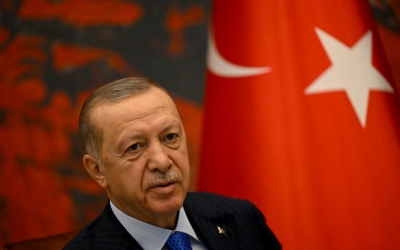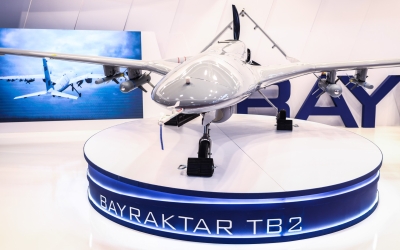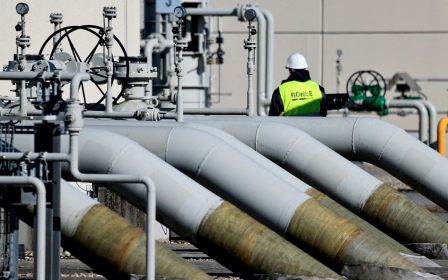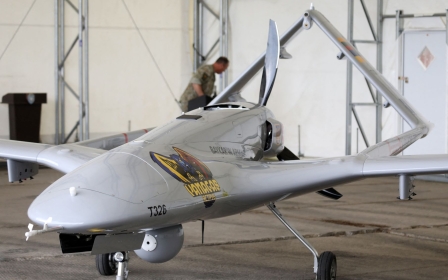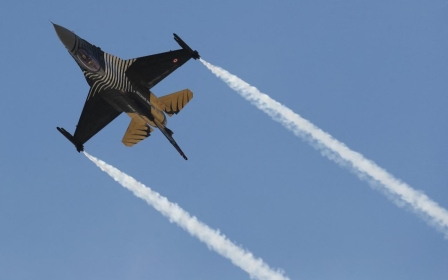EXCLUSIVE: Greece spreading 'malicious gossip' about Turkey, ambassador tells MEE
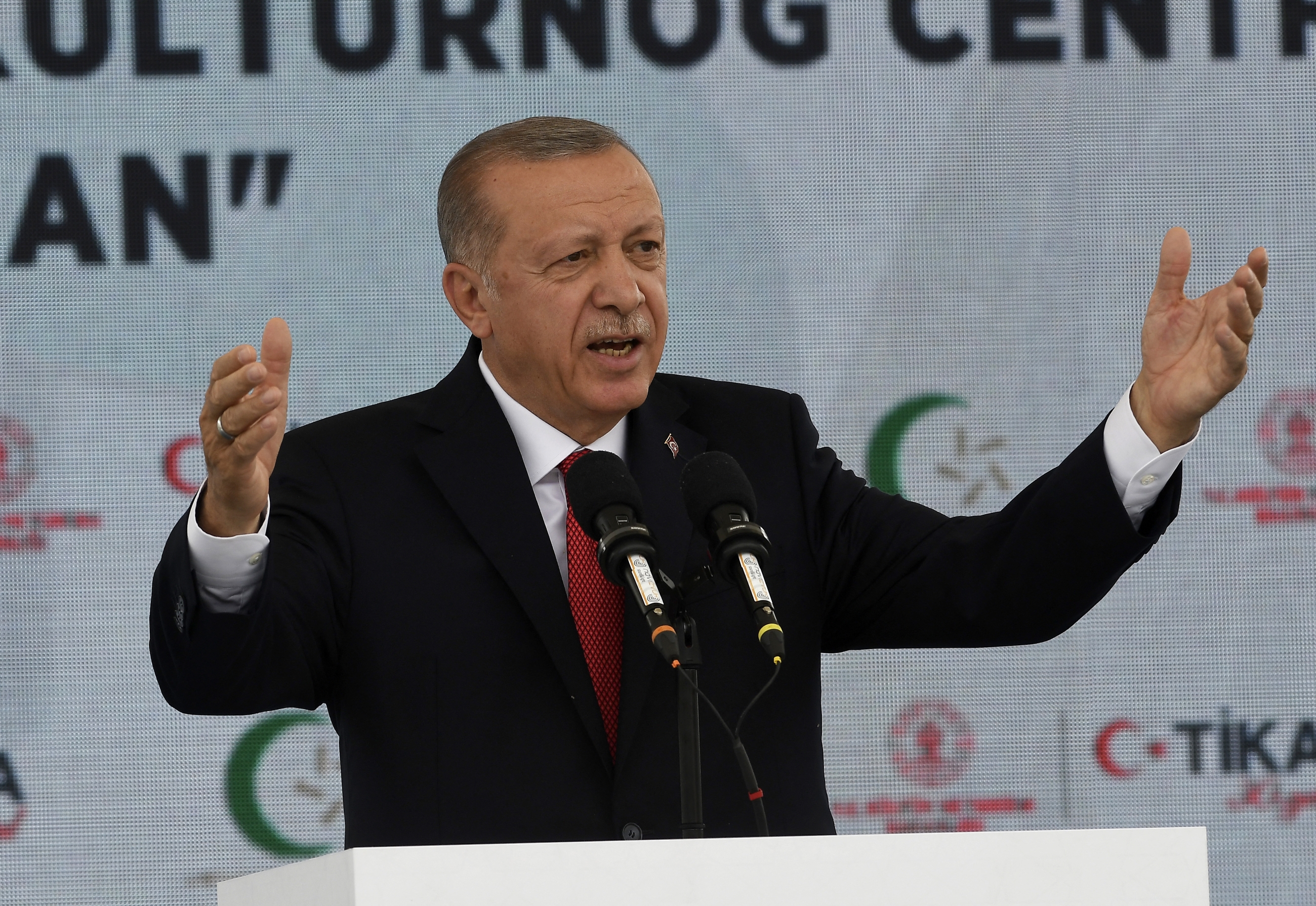
Turkey’s top diplomat in Greece accused Athens of engaging in “malicious gossip” as tensions between the two Nato allies flare in the Eastern Mediterranean.
In an interview with Middle East Eye, Turkey’s ambassador to Greece, Burak Ozugergin, said Greek officials had engaged in “defamation and slander” against Turkey. “Where we are now should not come as a surprise.”
Ties between the two neighbours have been fraught for decades. They are on opposing sides over a range of issues including maritime and airspace boundaries, energy deposits and the divided island of Cyprus.
Earlier this week, Greece sent letters to Nato, the United Nations and the EU asking the organisations to condemn comments by Erdogan that it said were "openly threatening" and “inflammatory”.
Recently, Turkey has been riled by what it claims is a growing military build-up on Greek islands along its coast. Athens maintains that the troops are defensive and stationed to protect Greek territory from superior numbers of Turkish troops across the Aegean.
The Greek islands dotting the Eastern Mediterranean have long been at the centre of tensions between Athens and Ankara. Last month, Turkey accused Greece of locking onto one of its F-16 fighter jets over international waters with a Russian S-300 missile system based on the island of Crete. Greece has denied the allegation.
“How does the Greeks radar-locking on Turkish aircraft with non-Nato air defence systems like the S-300 exactly help Nato unity?” Ozugergin told MEE.
“For those who aren’t in the know, radar locking on an aircraft is essentially the last step before firing on it,” Ozugergin said.
Greece and Turkey often engage in mock dogfights over Greece’s Aegean islands. Radar is used to “lock onto” a foe’s fighter jet and track it, without actually firing on the aircraft.
The S-300 was initially ordered by Cyprus in the 1990s. Since Turkey’s 1974 invasion, Cyprus has been divided between a breakaway Turkish north recognised only by Ankara and the internationally recognised government of Cyprus in the south. Athens took possession of the system in order to defuse tensions with Turkey, which warned it would destroy the S-300 upon its arrival.
'Nato unity'
Greece says that Erdogan’s rhetoric risks inflaming tensions in the strategic region at a time when Nato is occupied with Russia’s invasion of Ukraine. Greece has emerged as a key conduit of troops and supplies into Eastern Europe for the US, while Turkey has struck a more independent path.
While Ankara has provided armed drones to Ukraine, it has also refused to agree to western sanctions aimed at isolating Moscow and recently agreed to deepen economic cooperation with Russia.
On Thursday, Erdogan backed President Putin’s claim that grain from a UN-brokered deal meant to address rising food prices was going to "rich countries, not poor ones”.
Greece and Turkey, which both straddle strategic positions along Eastern Europe and the Mediterranean Sea, have sought to emphasise their importance to the Nato alliance with western leaders.
During a trip to Washington in May, Greek Prime Minister Kyriakos Mitsotakis warned the US Congress against selling arms to Turkey. Ankara requested the US sell it new F-16 fighter jets and modernisation kits for its ageing fleet of aircraft.
“Is Nato unity served well by the Greeks openly trying to prevent the maintenance or strengthening of Turkish armed forces, Ozugergin said. “Or perhaps such unity will be achieved by Greeks relentlessly arming themselves, all the while boasting that it is against Turkey.”
Greece has asked to join the US’s F-35 co-production fighter jet programme. Turkey was removed from the programme after it acquired the Russian S-400 missile system.
Early this summer, the US House of Representatives passed legislation that would bar the Biden administration from selling or transferring F-16s or modernisation kits to Turkey unless the administration ensures the armaments are not used for unauthorised military flights over Greece. The bill must be passed by the Senate before it becomes law.
Middle East Eye delivers independent and unrivalled coverage and analysis of the Middle East, North Africa and beyond. To learn more about republishing this content and the associated fees, please fill out this form. More about MEE can be found here.


